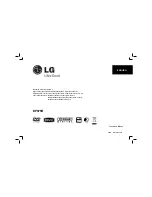
CIRCUIT DESCRIPTION
5-12
device (Q202), whereas the VHF Tx VCO’s active
device is a transistor inside the VCO buffer. The UHF
Tx VCO uses two active devices, one external (Q203)
and the other internal to the VCO buffer. The base and
emitter connections of this internal transistor are pins
11 and 12 of U201.
The Rx VCO is a Colpitts-type oscillator, with
capacitors C235 and C236 providing feedback. The
Rx VCO transistor (Q202) is turned on when pin 38 of
U204 switches from high to low. The Rx VCO signal
is received by the VCO buffer at U201, pin 9, where it
is amplified by a buffer inside the IC. The amplified
signal at pin 2 is routed through a low-pass filter
(L201 and associated capacitors) and injected as the
first LO signal into the mixer (U2, pin 8). In the VCO
buffer, the Rx VCO signal (or the Tx VCO signal
during transmit) is also routed to an internal prescaler
buffer. The buffered output at U201, pin 16 is applied
to a low-pass filter (L205 and associated capacitors).
After filtering, the signal is routed to a prescaler
divider in the synthesizer at U204, pin 21.
The divide ratios for the prescaler circuits are
determined from information stored in memory during
programming. The microcontroller extracts data for
the division ratio as determined by the selected
channel and sends that information to a comparator in
the synthesizer via a bus. A 16.8 MHz reference oscil-
lator, U203, applies the 16.8 MHz signal to the synthe-
sizer at U204 pin 14. The oscillator signal is divided
into one of three pre-determined frequencies. A time-
based algorithm is used to generate the fractional-N
ratio.
If the two frequencies in the synthesizer’s
comparator differ, a control (error) voltage is
produced. The phase detector error voltage (V control)
at pins 31 and 33 of U204 is applied to the loop filter
consisting of resistors R211, R212, and R213, and
capacitors C244, C246, C247, and C248. The filtered
voltage alters the VCO frequency until the correct
frequency is synthesized. The phase detector gain is
set by components connected to U204, pins 28 and 29.
In the Tx mode, U204, pin 38 goes high and
U201, pin 14 goes low, which turns off transistor Q202
and turns on the internal Tx VCO transistor in U204
and the external Tx VCO buffer Q203 on the UHF
circuit. The Tx VCO feedback capacitors are C219
and C220. Varactor diode CR203/CR207 sets the Tx
frequency while varactor CR202 is the Tx modulation
varactor.
The modulation of the carrier is achieved by
using a two-port modulation technique. The modula-
tion of low frequency tones is achieved by injecting
the tones into the A/D section of the fractional-N
synthesizer. The digitized signal is modulated by the
fractional-N divider, generating the required deviation.
Modulation of the high-frequency audio signals is
achieved by modulating the varactor (CR203) through
a frequency compensation network. Resistors R207
and R208 form a potential divider for the higher-
frequency audio signals.
In order to cover the very wide bandwidths,
positive and negative V-control voltages are used.
High control voltages are achieved using positive and
negative multipliers. The positive voltage multiplier
circuit consists of components CR204, C256, C257,
and reservoir capacitor C258. The negative multiplier
circuit consists of components CR205, CR206, C266,
C267, and reservoir capacitor C254.
Out-of-phase clocks for the positive multiplier
appear at U204, pins 9 and 10. Out-of-phase clocks for
the negative multiplier appear at U204, pins 7 and 8,
and only when the negative V-control is required (that
is, when the VCO frequency exceeds the crossover
frequency). When the negative V-control is not
required, transistor Q201 is turned on, and capacitor
C259 discharges. The 13V supply generated by the
positive multiplier is used to power-up the phase
detector circuitry. The negative V-control is applied to
the anodes of the VCO varactors.
The Tx VCO signal is amplified by an internal
buffer in U201, routed through a low pass filter and
routed to the Tx PA module, U105, pin 1. The Tx and
Rx VCOs and buffers are activated via a control signal
from U204, pin 38.
The reference oscillator supplies a 16.8 MHz
clock to the synthesizer where it is divided down to a
2.1 MHz clock. This divided-down clock is fed to the
ABACUS IC (U401), where it is further processed for
internal use.
VHF/UHF RF BOARD (VERSION A/B)
Summary of Contents for 5100 Series
Page 85: ...8 9 Version C Board see Section 1 13 VHF RF BOARD VER C LAYOUT ...
Page 87: ...8 11 VHF RF BOARD SCHEMATIC VER B PAGE 2 OF 3 ...
Page 88: ...8 12 VHF RF BOARD SCHEMATIC VER B PAGE 3 OF 3 ...
Page 95: ...8 19 BOTTOM VIEW TOP VIEW Version C Board see Section 1 13 UHF RF BOARD VER C LAYOUT ...
Page 105: ...8 29 BOTTOM VIEW TOP VIEW 700 800 MHZ RF BOARD VER C LAYOUT Version C Board see Section 1 13 ...
Page 112: ...8 36 SEM Module 5500 120 LOGIC BOARD VER C SCHEMATIC PAGE 5 OF 11 ...
Page 113: ...8 37 Analog Switch 5500 120 LOGIC BOARD VER C SCHEMATIC PAGE 6 OF 11 ...
Page 118: ...8 42 5500 120 LOGIC BOARD VER C LAYOUT BOTTOM VIEW TOP VIEW Version C Board see Section 1 13 ...
Page 143: ...8 67 5500 420 USER INTERFACE BOARD VER C TOP VIEW Version C Board see Section 1 13 ...
Page 144: ...8 68 5500 420 USER INTERFACE BOARD VER C BOTTOM VIEW ...
Page 148: ...8 72 5100 410 USER INTERFACE BOARD VER A BOTTOM VIEW Version w o encryption module ...
Page 152: ...8 76 5100 450 USER INTERFACE BOARD VER B BOTTOM VIEW Version with EFJ SEM ...
Page 156: ...8 80 5100 460 USER INTERFACE BOARD VER B BOTTOM VIEW Version with Motorola UCM ...
Page 172: ...9 15 OBSOLETE VERSION 5100 410 USER INTERFACE BOARD VER A BOTTOM VIEW Revision 6 Board ...
Page 173: ...Part Number 001 5100 0017CD 12 04hph Printed in U S A ...
















































